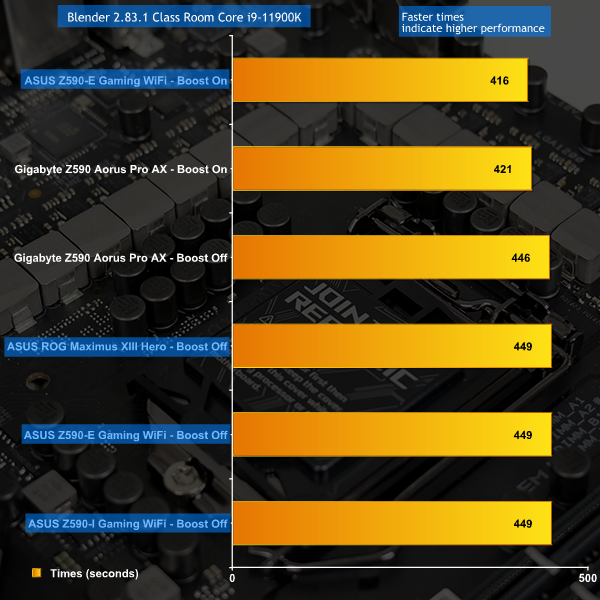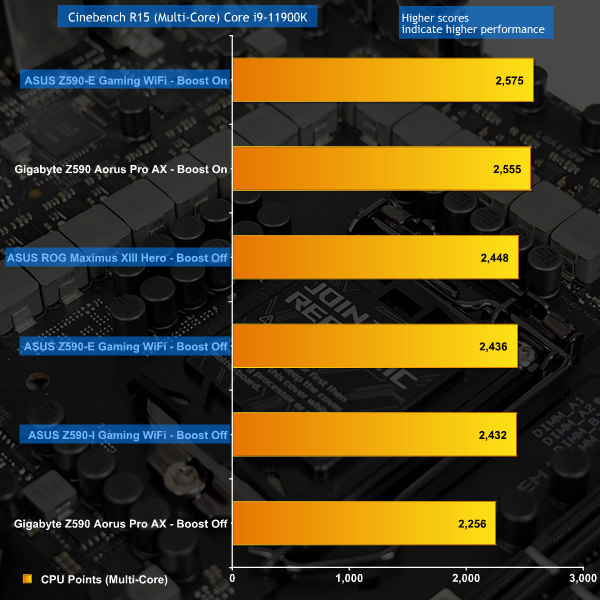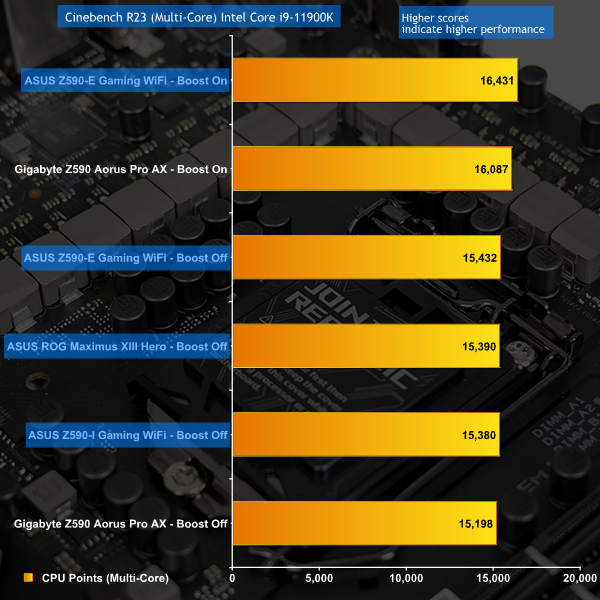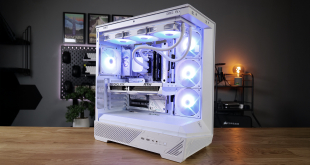Blender Benchmark
Cinebench
Looking at CPU-focussed performance in Blender, we see ASUS’ options scoring very closely to Gigabyte Z590 competitor that Leo tested. This is because the Core i9-11900K was running at the same nominal 4.7-4.8GHz clock speed. Applying Adaptive Boost increases performance beyond that of Gigabyte’s competitor.
Cinebench R15 numbers from the ASUS boards are better than Gigabyte from the start. The score is basically even when Adaptive Boost is applied on the Z590-E Gaming WiFi.
We see the same trend in Cinebench R23 whereby ASUS’ Z590 options score a little higher than the Gigabyte board that Leo tested when at stock. Adaptive Boost delivers a healthy performance gain for additional heat and power.
 KitGuru KitGuru.net – Tech News | Hardware News | Hardware Reviews | IOS | Mobile | Gaming | Graphics Cards
KitGuru KitGuru.net – Tech News | Hardware News | Hardware Reviews | IOS | Mobile | Gaming | Graphics Cards





